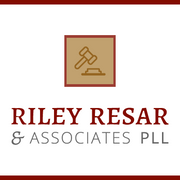The Fundamentals of Real Estate Ownership & Estate Plans

A vital aspect of estate planning is dealing with real estate. How a home or another type of real property in Ohio transfers at death depends on the terms of ownership. This overview will help you gain a better understanding of how ownership will affect what happens to your real estate after you die.
Sole Ownership
If you’re the sole owner of a home, or another type of real estate, you have the freedom to structure its transfer any way you want upon your death. However, even if you live alone in the home, Ohio real estate law may affect the ownership status of the property. If there is a clause in the deed or elsewhere, for example, that designates the property is “payable on death” or to be “transferred on death,” the law may limit how you can manage the property in your estate plan.
If the title declares that you own the property in "fee simple absolute," you are designated as the sole owner. You can, as a result, bequeath the property as you see fit. It protects you from having to transfer the property automatically to another person at death. If you own a home in fee simple absolute, you can name the person to whom to transfer a property in your estate plan.
Joint Ownership
 In Ohio, the “right to survivorship” guarantees a house will automatically be transferred to a spouse or another person. Although automatic transfer ensures the property is not subject to probate, it may be necessary to provide documentation to establish the surviving joint owner as the sole owner of the real estate.
In Ohio, the “right to survivorship” guarantees a house will automatically be transferred to a spouse or another person. Although automatic transfer ensures the property is not subject to probate, it may be necessary to provide documentation to establish the surviving joint owner as the sole owner of the real estate.
Joint Tenancy
Partners who own property owned equally in joint tenancy do not have to be married. As long as they can demonstrate the property was owned equally, it will automatically pass to the surviving owner without the need for probate.
Tenancy by the Entirety
Although this form of ownership is very similar to joint tenancy, Ohio estate planning laws require that partners be married. Although newer laws in the state prohibit the creation of a new tenancy by the entirety, real estate ownership of this type is considered valid if it was established between February 9, 1972, and April 3, 1985.
As this overview suggests, dealing with real estate is a complex estate planning issue and requires the expertise of a knowledgeable attorney. Located in Lorain, Riley Resar & Associates PLL has more than three decades of experience helping residents of northern Ohio manage their real estate holdings and estate plans. You can learn more about how Ohio laws will affect your situation by calling (440) 244-5214 to schedule an initial consultation, or go online to learn more about this firm.
About the Business
Have a question? Ask the experts!
Send your question

